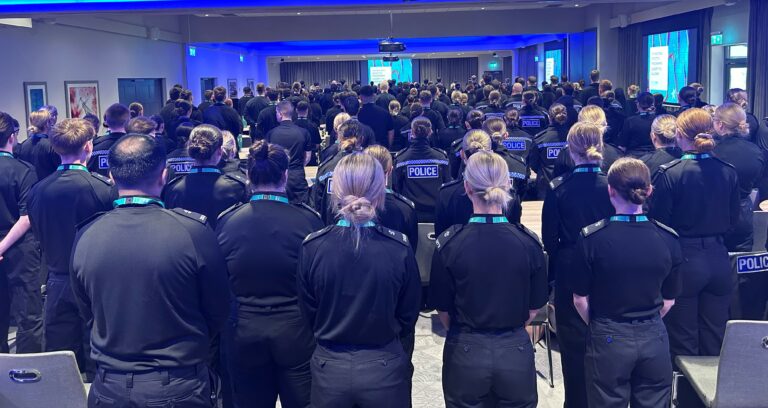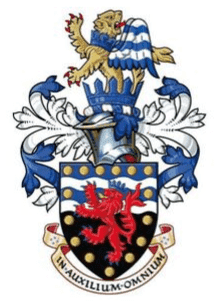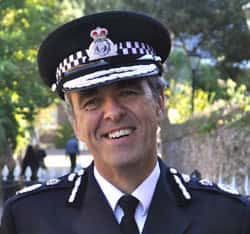Police Now officers tackling crime and anti-social behaviour across Humberside
Friday 11 June 2021
Nearly 40,000 fewer anti-social behaviour incidents nationally in areas with Police Now officers – equivalent to 14% fall
Substantial decrease in criminal damage & arson, burglary and shoplifting amongst other crimes
Police Now attracts and develops the most diverse group of officers in policing
Police Now’s mission is to transform communities by recruiting, developing and inspiring diverse leaders in policing.
PC Naomi Marrone of Humberside Police received a commendation from her commander for talking a distressed man down from a bridge in Scunthorpe just two weeks into her neighbourhood role. Upon speaking to the man, she found out he had come off his medication and was suffering from anxiety and depression. She realised that speaking into her police radio was upsetting him, and instead focused on making sure other officers were giving them space as she held him steady and gained his trust. Although at one point he became aggressive towards some of her colleagues, she managed to safely get him down from the bridge. He was detained under the Mental Health Act for his own safety and later admitted that he needed help but had been unsure where to go.
PC Marrone said: “Looking back, I was extremely nervous before I arrived at the bridge having not dealt with many mental health related jobs before this. The thanks I received from the man, his family and from my supervisors confirmed to me that I dealt with the situation in the best possible way. I was nominated for the commendation because of the decisions I took and my calm communication. It’s my proudest moment in the job.”
Officers on Police Now’s programmes develop skills in leadership and problem-solving. They share a commitment to public service, fighting crime and inspiring social change alongside their colleagues.
Police Now has recruited a total of 1,830 officers across 33 forces in the UK, including Humberside Police. Chief Constable Lee Freeman has invested in his communities by partnering with Police Now for the past four years, with 30 police constables and 10 detective constables joining the force via this route.
Police Now consistently recruits more officers who are women or from black, Asian and minority ethnic backgrounds compared to any other entry route into policing. Police Now recruitment data shows that of those starting on Police Now’s programmes in Humberside in 2020/21, one in five (20 per cent) identified as coming from a black, Asian and minority ethnic background and more than half (55 per cent) identified as women.
Officers on Police Now’s National Graduate Leadership Programme have been working alongside their colleagues within their dedicated local neighbourhood teams. Communities where Police Now officers have been posted for the last 22-months across the force area have seen 257 fewer incidents of anti-social behaviour compared to the same time period from October 2016 – equivalent to a 6 per cent drop.
As well as the drop in anti-social behaviour, communities have also seen 249 fewer incidents of criminal damage and arson – a fall of 8 per cent. There were 246 fewer incidents of shoplifting – a fall of 12 per cent, and 176 fewer incidents of burglary – equivalent to a 9 per cent fall.
“We’re incredibly proud of the positive impact our participants continue to have within their local communities, and their commitment to driving positive change with their colleagues so that everyone in our society, including the most vulnerable, have a chance to thrive”.
David Spencer
Co-founder of Police Now and former Detective Chief Inspector
Impact in the
community

Q&A with Police Constable Naomi Marrone
Neighbourhood Police Officer
National Graduate Leadership Programme Participant
Humberside Police
Police Now is trying to increase diversity in the force. Do you think having a force that better reflects the community it serves helps to bring down crimes like anti-social behaviour and why?
In some respects, I do believe that a more diverse force helps to decrease crimes such as anti-social behaviour because the way in the police are perceived plays a huge role in the actions of the public. If true rapport can be built with members of communities by officers who are like minded, share the same cultural similarities, are from a similar backgrounds or who understand the public best then best practice responses can be developed and used to best combat certain problems. However, on the flip side and from experience, it seems no matter how strong relationships are between the police and the public there will always be problems with anti-social behaviour because often it is not a police/public problem, it could be anything from neighbours causing annoyance to one another or a young person testing the boundaries as they begin to find their own independence or personalities to doing things for personal gain. Therefore, with the best will in the world there is a high chance that even with the best, most diverse police force there will still be crimes that are hard to bring down, but, only positive things can come from diversifying the policing family.
What was the most important lesson you took from your training with Police Now that has enabled you to deal with crime / support your community?
To remember that things are not always as they first seem and that it is SO IMPORTANT to scratch beneath the surface and find the root of a problem. All too often jobs come in and we take it on the merits of the first call, its easy to make prejudgements of people and situations before you arrive. My training taught me, above all else, to be thorough in everything I do, in everything I investigate and to not prejudge anyone or anything.
Have you implemented any new initiatives to reduce ASB or burglary crimes, or build confidence in policing in your community?
I was having trouble with nuisance ASB on a golf course that is on my patch, due to the COVID restrictions and the golf course being closed it was often unoccupied. There was an increased number of logs for nuisance motorbikes and push bikes entering the golf course and causing damage to the golf course. The number of logs has since decreased since the golf courses have reopened, but for when the course is closed at night I came to an arrangement with the golf club. They would provide the police dog department with a key so that during quiet times or closed periods the units can work their dogs on the lawns. This is a strategy that shows police presence and high visibility and ultimately has diminished all calls for service since the arrangement began. While this may not be a new initiative it has been effective in this instance, I am proud of as it was the first theme for my Police Now ‘impact event’.
What has been the moment that you have been most proud of professionally in the last 22 months?
Two weeks into my neighbourhood role and while in company with a PCSO I self-assigned to a concern for welfare, due to being in the area. A man was reportedly on a main bridge and suffering from depression, stating that he no longer wanted to be alive and he was on the bridge wanting to jump off. I got to the man as quickly as I could and could straight away see that he was in distress.
At first the man was not engaging with me. I called up to the control room to inform them that I was with him but it seemed that me speaking on my radio was distressing him more. As the man tried to climb the fence on the bridge, I managed to get hold of him and push him to safety. Whilst I had hold of the man, I could smell alcohol on his breath, he stated that he had recently come off his depression medication and was suffering high levels of anxiety and depression. I kept hold of him and used my tactical communications to engage with him, I asked him repeatedly to keep eye contact with me as a way of trying to build rapport so that he felt he could trust me.
Once he had calmed down, I tried to speak with him further to see what I could do to best help him. I offered him several options including speaking with a mental health professional who was on standby and willing to talk to him straight away. The man did not want to engage with anyone else as he didn’t believe that they could help him. Once other patrols attended, he became very distressed again. He became aggressive towards the other officers, newly on the scene, and his partner who was stood next to him. I realised he was becoming overwhelmed and I asked everyone to back off so that I could speak to him in the same way that we had been previously. It was apparent to me that he was unwilling to engage with male officers, and I took it upon myself to be the main officer to speak with him.
We spoke for a while about what I could do to help. The man’s family was in attendance and between them and I we managed to walk the man off the bridge. He thanked me over and over again for listening to him and for not arresting him, despite me telling him numerous times that I had no reason to arrest him and that I was there solely to protect and help him. The family thanked me also. Once we had reached the end of the bridge patrols were waiting to help , it was at this point that the man was detained under the mental health act for his own safety. We explained that he would be taken to a place of safety for a mental health assessment, after some conversation the man understood and stated that he needed help but didn’t know where to go. It was at this point that I knew we had done the right thing. I assisted with transporting the man to the mental health unit and then spent time debriefing with my PCSO.
Looking back, I was extremely nervous before I arrived at the bridge having not dealt with many mental health related jobs before this. I was nervous that I would say the wrong thing, do the wrong thing or not act in a way that was appropriate. However, the thanks I received from the man, his family and from my supervisors confirmed to me that I dealt with the situation the in the best possible way. Going forwards I have used this incident as baseline for attending other mental health incidents as I felt I conducted myself in a professional and friendly manner which helped the distressed man. I was commended by my sergeant and inspector for my actions that evening and have been nominated for a commendation because of it. When I asked why this was, my supervisor stated that they were impressed with my decisions and calm communication throughout especially being so young in service. As such, this is my proudest moment in the job so far and I really hope the man is getting the help he needs and deserves.
Data references
Using data taken from Police Recorded Crime Statistics, the independently peer-reviewed figures compare the 22-month period from October 2016 to July 2018 before any Police Now officers had joined their local communities to the period when they joined from October 2018 to July 2020.
The data presented here is subject to limitations with Police Recorded Crime Statistics and methodology. More details on this are available at the bottom of the following Police Now webpage.






